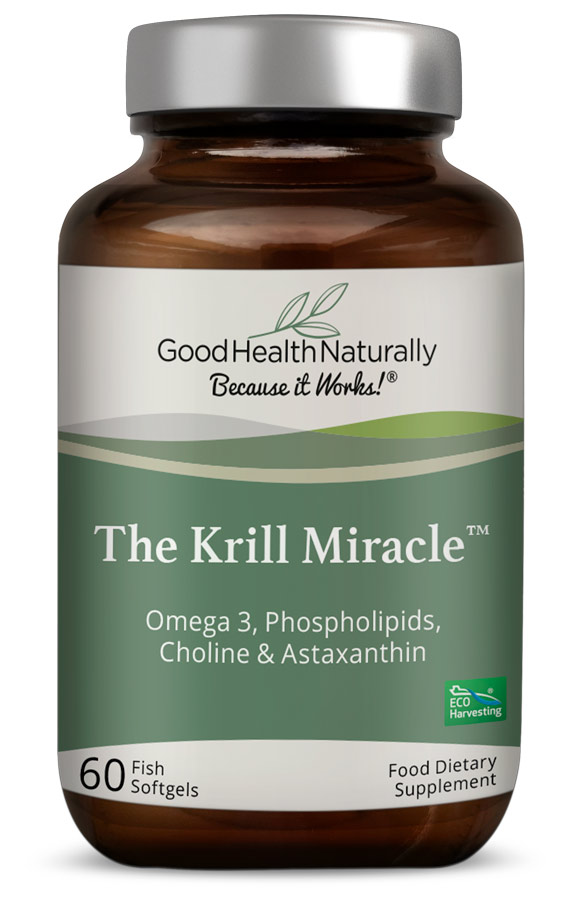When it comes to choosing the best omega-3 supplement, Krill Oil vs. Fish Oil is a debate that continues to captivate health-conscious individuals. Both are packed with the essential omega-3 fatty acids EPA and DHA, but which one may be better for your health, and why?
In this article, we’ll explore the key differences between krill oil and fish oil, focusing on their bioavailability, sustainability, antioxidant benefits, and overall effectiveness as omega-3 supplements. Whether you’re looking to support heart health, brain function or reduce inflammation, this ultimate comparison will help you make an informed choice.
Structural Differences: Phospholipids vs. Triglycerides
One of the fundamental differences when comparing krill oil to fish oil lies in the structure of their omega-3 fatty acids. In fish oil, omega-3s are stored in triglycerides, whereas in krill oil, they are bound to phospholipids. This structural variation significantly affects how the body absorbs and uses these omega-3s.
Fish oil’s triglyceride-bound omega-3s must go through a digestive process to be broken down before absorption, which can sometimes lead to inefficiencies and is often the cause of the well-known “fish burps.” On the other hand, krill oil’s phospholipid-bound omega-3s are more easily absorbed by the body’s cells, particularly in critical tissues like the heart, brain, and skin.
A 2011 study published in Lipids in Health and Disease found that participants who took krill oil had significantly increased plasma levels of EPA and DHA, comparable to fish oil. Therefore, despite a lower dose of EPA and DHA, krill oil was equally effective in delivering omega-3 fatty acids due to its phospholipid structure.
Bioavailability: Why Absorption Matters
Bioavailability is a critical factor when considering krill oil vs. fish oil. Thanks to its phospholipid structure, krill oil is absorbed more efficiently into cells than fish oil, which requires processing by the liver before the body can fully utilise it.
This superior absorption is especially important when omega-3s need to reach the brain and heart quickly. In fact, a study published in Nutrition Research showed that krill oil supplementation improved cognitive function in older adults, reinforcing the advantage of its higher bioavailability.
Furthermore, krill oil is rich in choline, an essential nutrient that supports brain function and cellular health by aiding neurotransmitter production and maintaining cell membrane structure.
Astaxanthin: Krill Oil’s Secret Antioxidant Weapon
A significant advantage krill oil has over fish oil is its natural content of astaxanthin, a powerful antioxidant. Astaxanthin gives krill oil its distinctive red colour. It protects omega-3s from oxidation, keeping them stable and fresh without the need for added preservatives like vitamin E, which is often necessary for fish oil.
Astaxanthin also offers additional health benefits, including protection against oxidative stress, which can lead to cell damage. A 2018 study published in Nutrients showed that astaxanthin improved skin hydration and elasticity and reduced wrinkles in participants. This makes krill oil not just a source of omega-3s but also a potent multi-nutrient supplement for overall wellness.
Sustainability: Why Krill Oil is a More Eco-Friendly Choice
In terms of sustainability, krill oil offers a clear advantage over fish oil. Krill harvesting is strictly regulated and monitored to ensure it doesn’t disrupt the delicate marine ecosystem. Krill oil is derived from one of the most abundant species on the planet, making it a more sustainable omega-3 source than the fish populations used in fish oil supplements, such as anchovies and sardines, which are at greater risk of overfishing.
Because krill are at the bottom of the food chain, they also have far fewer toxins like mercury and PCBs, which can be a concern with fish oil. This makes krill oil not only more eco-friendly but also a cleaner source of omega-3s.
of Omega-3s: Quantity vs. Quality
While fish oil often boasts higher concentrations of EPA and DHA per serving than krill oil, this doesn’t necessarily mean it is more effective. Due to krill oil’s superior absorption, the body can make better use of its lower omega-3 content.
In a study comparing the effects of krill oil and fish oil on cholesterol levels, participants who took krill oil experienced more significant reductions in LDL cholesterol and triglycerides despite consuming lower amounts of omega-3 overall. This demonstrates that krill oil’s higher bioavailability compensates for its lower concentration, delivering significant health benefits with fewer capsules.
Conclusion: Krill Oil vs Fish Oil?
When choosing between krill oil and fish oil, both offer valuable health benefits, but krill oil stands out for its superior absorption, added antioxidant protection, and sustainability. While fish oil may provide higher quantities of omega-3s, krill oil’s bioavailability ensures that the body can use its omega-3s more efficiently, delivering potent benefits with smaller doses.
For anyone looking to optimise their omega-3 intake, protect their heart, brain, and joints, and support sustainable practices, krill oil is a smart, eco-friendly choice.
References:
- https://www.ncbi.nlm.nih.gov/pmc/articles/PMC3024511/
- https://www.researchgate.net/publication/256838655_Effects_of_krill_oil_containing_n-3_polyunsaturated_fatty_acids_in_phospholipid_form_on_human_brain_function_A_randomized_controlled_trial_in_healthy_elderly_volunteers
- https://www.ncbi.nlm.nih.gov/pmc/articles/PMC5946307/
- https://epub.ub.uni-muenchen.de/23340/
- https://link.springer.com/article/10.1186/1476-511X-10-145





